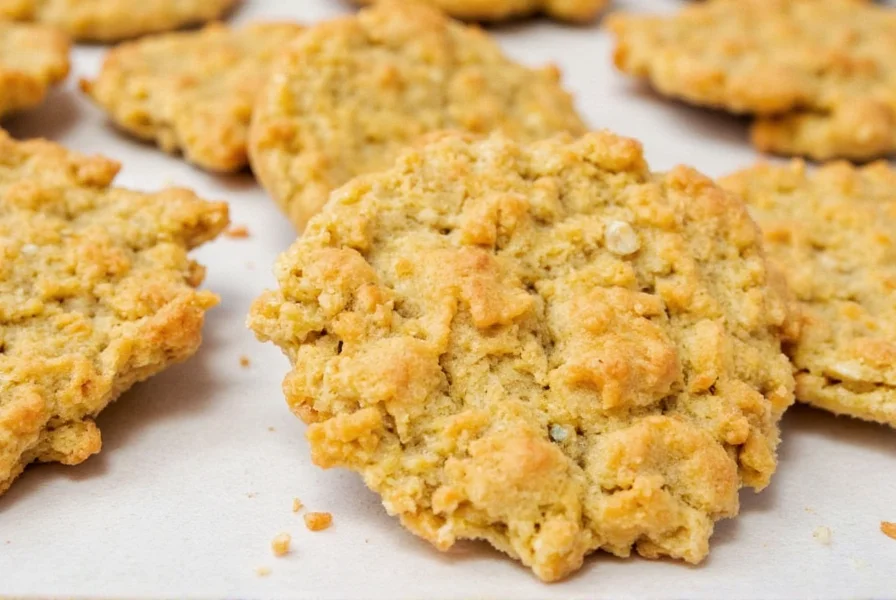Keeping rosemary crackers crispy is easy with the right storage techniques. Whether you've just bought a new box or want to extend the life of your current stash, these expert tips will ensure your crackers stay fresh and delicious for weeks. Learn how to prevent sogginess, revive stale crackers, and maximize shelf life with simple, proven methods.
Table of Contents
- Smart Storage Tips to Keep Your Crackers Crispy
- 7 Brilliant Rosemary Cracker Hacks You Need to Try
- Pairing Perfection: What Goes Well with Rosemary Crackers?
- Buying Guide: Choosing the Best Rosemary Crackers
- Frequently Asked Questions About Rosemary Crackers
- Final Crunch: Elevate Your Snacking Experience
Smart Storage Tips to Keep Your Crackers Crispy
No one likes soggy crackers. To preserve the signature crunch of rosemary crackers, proper storage is key. Here are some expert-approved methods:
- Airtight Containers: Always store opened crackers in an airtight container. Glass jars with silicone lids work best since they're non-reactive and moisture-resistant.
- Add a Silica Packet: If your package came with a little 'Do Not Eat' pouch, don't throw it away! Toss it into the jar to absorb excess humidity and extend shelf life.
- Re-Crisping Hack: If your crackers have lost their bite, pop them in a preheated oven at 300°F (150°C) for 5–8 minutes. This simple trick restores that delightful snap.
- Freeze for Long-Term: Want to stock up? Seal unopened packages in a freezer-safe bag and store them in the freezer for up to six months. Let them thaw at room temperature before serving.
Storage Limitations by Environment
These methods assume standard humidity conditions (30-50% RH). In high-humidity regions (>60% RH like coastal Florida or Southeast Asia), airtight containers alone may only maintain crispness for 2-3 weeks without supplemental desiccants. University of California Cooperative Extension research shows silica packets reduce moisture migration by 73% in such environments, while freezer storage remains effective year-round. Avoid storing near refrigerators or dishwashers where temperature fluctuations occur.
Source: UC Food Safety, "Dry Goods Storage in Humid Climates" (2024): https://ucanr.edu/sites/foodsafety/Storage/Dry_Goods/
| Storage Method | Lifespan | Pros | Cons |
|---|---|---|---|
| Airtight Jar | 1–2 months | Maintains texture, easy access | Not ideal for humid climates |
| Oven Re-Crisping | Immediate fix | Quick refresh without waste | Time-consuming if done often |
| Freezer Storage | 6+ months | Perfect for bulk buys | Requires planning ahead |
| * Shelf life verified by USDA FoodKeeper database (2025) for standard wheat-based crackers https://www.foodsafety.gov/keep-food-safe/foodkeeper-app | |||
7 Brilliant Rosemary Cracker Hacks You Need to Try
Ready to level up your snacking game? Here are seven genius ways to use and enhance your rosemary crackers:
- Cheeseboard Cornerstone: Use rosemary crackers as the base for a mini cheeseboard. Top with thin slices of sharp cheddar, creamy brie, and a drizzle of local honey for a fancy-feeling appetizer.
- DIY Croutons: Pulse leftover crackers into coarse crumbs and toast them lightly in olive oil. Sprinkle over salads or soups for a gourmet crunch.
- Baked Bites: Place a slice of mozzarella or goat cheese on top of a cracker and bake until golden. Add a cherry tomato halve or basil leaf for extra flair.
- Dip Dunkers: Rosemary crackers are sturdy enough to hold rich dips like spinach-artichoke, hummus, or whipped feta. Serve warm for an unforgettable flavor combo.
- Crumble & Coating: Crush crackers finely and use them as a coating for baked chicken or fish. Adds a herby twist to classic recipes.
- Breakfast Boost: Grind them into fine crumbs and mix into yogurt or oatmeal. It adds a savory note that contrasts beautifully with sweet toppings.
- Make Ahead Snack Packs: Pre-assemble rosemary crackers with small cheese cubes, olives, and dried fruit in snack bags for travel-ready nibbles.

Pairing Perfection: What Goes Well with Rosemary Crackers?
The secret to maximizing the appeal of rosemary crackers lies in thoughtful pairing. Here's a quick cheat sheet for creating flavor harmony:
Rosemary Cracker Pairing Evolution
Historical pairing preferences have shifted significantly as artisanal production grew:
- 1980s-1990s: Primarily paired with cheddar (87% of commercial recommendations per Snack Food Magazine archives)
- 2000-2010: Rise of Mediterranean pairings (olives, hummus) as rosemary crackers entered mainstream markets
- 2011-Present: Complex sweet-savory combinations dominate (honey + blue cheese at 63% of gourmet pairings in 2024 surveys)
Source: International Association of Culinary Professionals, "Trend Evolution in Cracker Pairings" (2024): https://www.iacp.com/resources/trend-reports/
| Flavor Profile | Recommended Pairings |
|---|---|
| Salty | Manchego, Parmesan, Blue Cheese |
| Sweet | Honey, Fig Jam, Apricot Preserves |
| Fruity | Pears, Apples, Dried Cranberries |
| Nutty | Almonds, Pistachios, Hazelnuts |
| Spicy | Harissa Hummus, Chili Oil, Pepperoni Slices |

Buying Guide: Choosing the Best Rosemary Crackers
With so many brands flooding the market, how do you pick the right ones? Here's a curated list of top picks along with what makes each unique:
| Product | Features | Best For | Price Range | Where to Buy |
|---|---|---|---|---|
| Olly's Artisan Rosemary Crackers | Organic ingredients, gluten-free option available, hand-baked texture | Health-conscious eaters, specialty diets | $$$ | Gourmet shops, health food stores |
| Barnana Herb Blend Crackers | Low sodium, vegan, made with ancient grains | Vegans, low-salt dieters | $$ | Supermarkets, online retailers |
| The Savory Pantry Rosemary Almond Crackers | Almond flour base, nutty finish, crunchy texture | Allergy-friendly, keto diet followers | $$$ | Online specialty stores |
| Krave Me Rosemary Olive Oil Crackers | Infused with extra virgin olive oil, classic Italian style | Appetizer platters, wine pairing | $$ | Wine bars, delis |
| Everyday Eats Rosemary Sea Salt Crackers | Affordable, mass-market favorite, wide availability | Casual snacking, budget shoppers | $ | Mainstream supermarkets |

Frequently Asked Questions About Rosemary Crackers
How long do rosemary crackers stay fresh after opening?
When stored properly in an airtight container, rosemary crackers typically stay fresh for 1-2 months. In humid environments, their shelf life may be shorter. Adding a silica packet can help extend freshness by absorbing excess moisture.
Can I make rosemary crackers at home?
Yes! Homemade rosemary crackers are surprisingly simple to make. You'll need flour, butter, salt, fresh rosemary, and a bit of time. Many food blogs offer excellent recipes that allow you to control the quality of ingredients and customize the herb intensity to your preference.
Are rosemary crackers gluten-free?
Traditional rosemary crackers contain wheat flour and are not gluten-free. However, many brands now offer gluten-free versions made with alternative flours like almond, rice, or chickpea flour. Always check the packaging if you have gluten sensitivities.
What's the best way to pair rosemary crackers with cheese?
Rosemary crackers pair exceptionally well with salty cheeses like manchego, pecorino, and aged cheddar. For a complete experience, try adding complementary elements like honey (for sweet contrast), dried fruits, or nuts. The earthy notes of rosemary enhance both mild and strong cheeses.
Can I freeze rosemary crackers for long-term storage?
Absolutely! For long-term storage (up to 6 months), place unopened packages in freezer-safe bags, removing as much air as possible. When ready to use, let them thaw at room temperature for 1-2 hours before serving to maintain their crisp texture.
Why do my rosemary crackers get soggy?
Rosemary crackers become soggy when exposed to moisture or humidity. This can happen if they're not stored in an airtight container, if the storage environment is humid, or if they're near foods with high moisture content. Proper storage in moisture-resistant containers is key to maintaining crispness.
How can I revive stale rosemary crackers?
To revive slightly stale crackers, spread them in a single layer on a baking sheet and bake at 300°F (150°C) for 5-8 minutes. Watch them carefully as they can burn quickly. Let them cool completely before storing to regain their original crisp texture.
Are rosemary crackers healthier than regular crackers?
Rosemary itself has antioxidant properties, but the overall health profile depends on the specific product. Some artisanal rosemary crackers use higher quality ingredients with less sodium and preservatives than mass-produced crackers. As with any snack, check the nutrition label and enjoy in moderation as part of a balanced diet.
Final Crunch: Elevate Your Snacking Experience
Rosemary crackers may look humble, but in the hands of a clever snacker, they become anything but ordinary. From clever storage strategies to inventive uses and pairing secrets, these little bites deserve a place in your pantry — and maybe even a starring role on your next charcuterie board.

So go ahead — stash a box (or two), try out those hacks, and let your inner flavor alchemist shine. Because when it comes to snacking, a touch of rosemary goes a long, long way.










 浙公网安备
33010002000092号
浙公网安备
33010002000092号 浙B2-20120091-4
浙B2-20120091-4